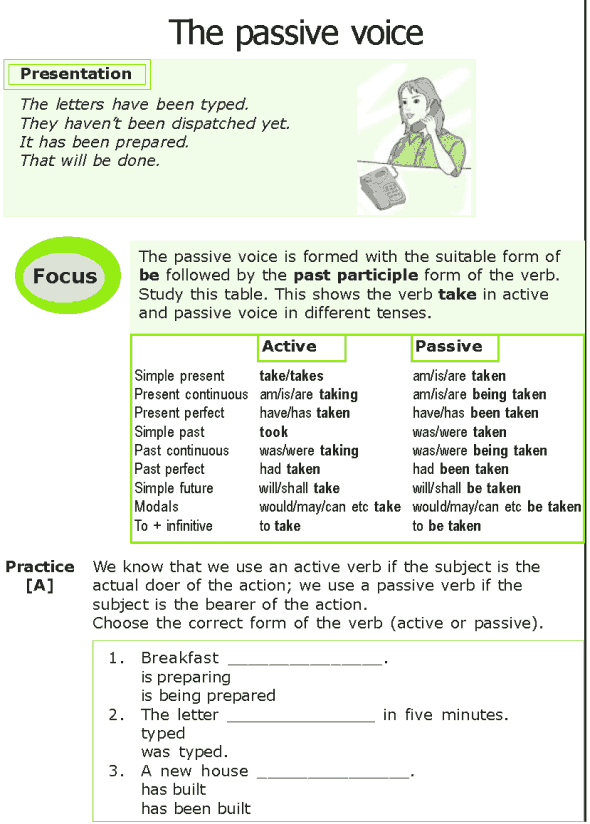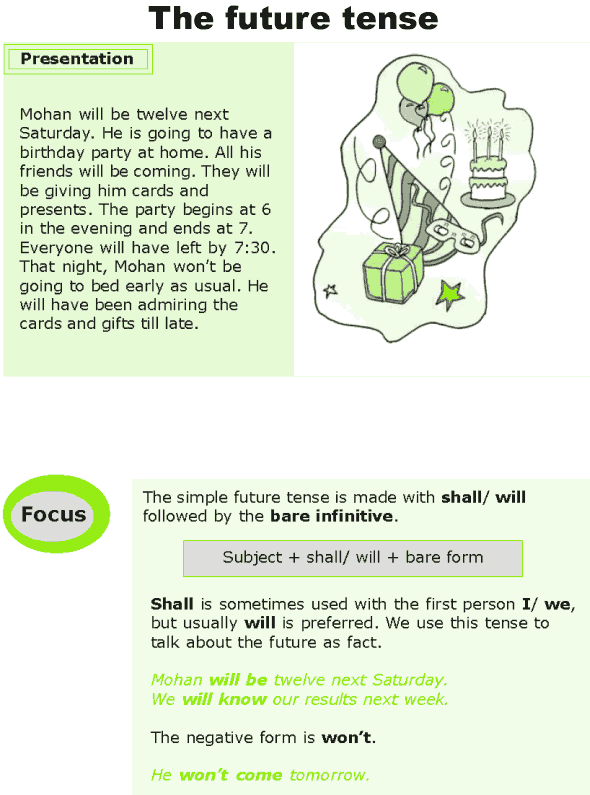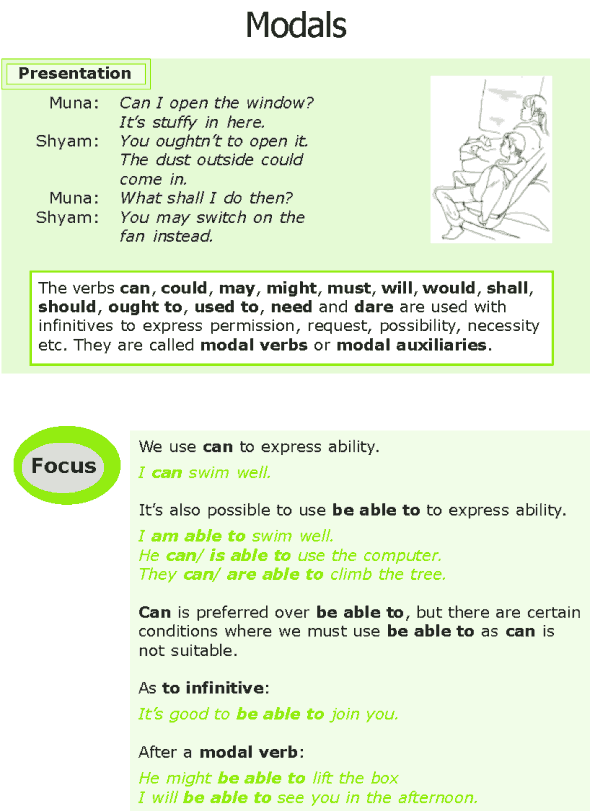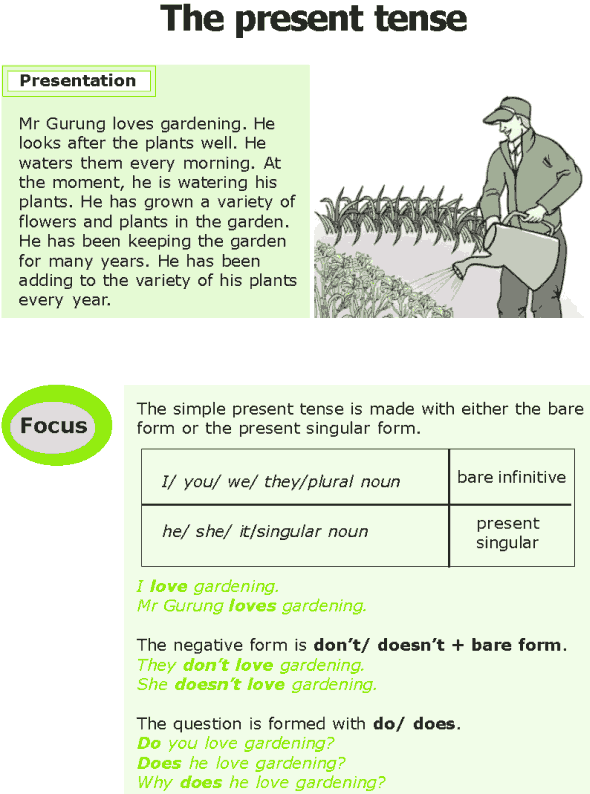 Genre/Topic: Passive voice
Genre/Topic: Passive voice
What is the active voice? When do we use it? What is the passive voice? When do we use it? Can negative sentences be changed to their passive forms? Can we change questions to their passive forms?
 Genre/Topic: Tense
Genre/Topic: Tense
What is the structure of simple future tense? When do we use the simple future tense? What is the difference between ‘going to’ and ‘will’? Can the simple present tense and the present continuous tense be used to express future plans as well? What is the structure of future continuous tense? When do we use […]
 Genre/Topic: Verbs
Genre/Topic: Verbs
What are modal verbs? Which is more preferable: ‘can’ or ‘be able to’? Is the verb ‘could’ used to ask as well as give permission? What verbs should I use when I want to express a possibility? What verb do I use for expressing past obligations?
 Genre/Topic: Tense
Genre/Topic: Tense
What is the structure of simple past tense? When do we use the simple past tense? What is the structure of past continuous tense? When do we use the past continuous tense? What is the structure of past perfect tense? When do we use the past perfect tense? What is the structure of past perfect […]
 Genre/Topic: Tense
Genre/Topic: Tense
What is the structure of simple present tense? When do we use the simple present tense? What is the structure of present continuous tense? When do we use the present continuous tense? What is the structure of present perfect tense? When do we use the present perfect tense? What is the structure of present perfect […]